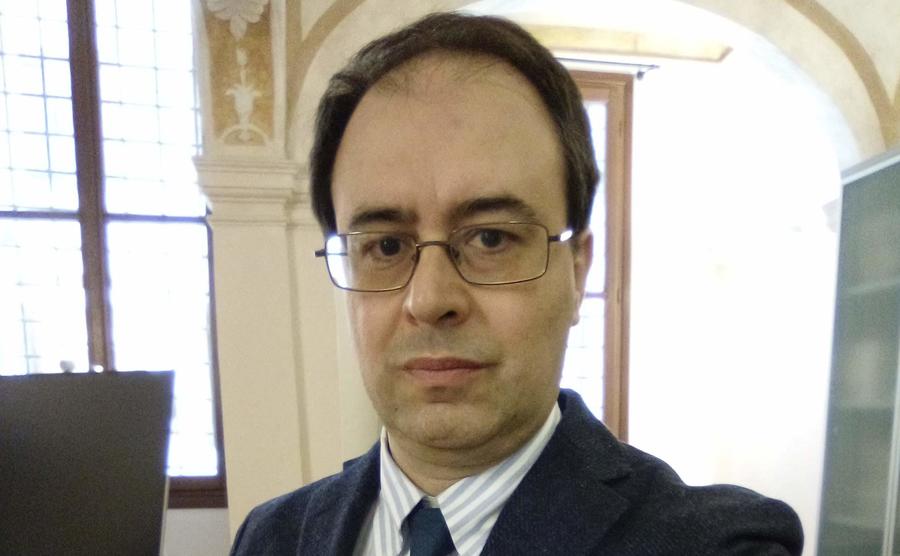Type de contenu
Professeur invitéAlexei Kraikovski

Alexei Kraikovski is a Senior Researcher at the Laboratory for Environmental and Technological History at the National Research University Higher School of Economics (ST. Petersburg) and a MSCA Seal of Excellence Research fellow at the University of Padova (Italy). He will take part in the Visiting Professors Program hosted by EHESS and Liliane Hilaire-Pérez (EHESS, CAK) in June 2021.
Kraikovski works a lot on the history of the Russian coastal and maritime history and heritage. His main recent projects deal with the modernization of the Russian marine harvesting in the 18th century considered through the general perspective of Europeanization and maritimization of Russia during and after the reign of Peter the Great. His major research focus is concentrated on the issues related to the mechanisms of transfer of European ideas and technologies to Russia. He considers this process as a complicated interaction of many actors having different strategies. Eventually he tries to reveal the role of imaginaries as a base of decision making process.
CONFÉRENCES
Shipbuilding Technologies and the Construction of the Europeanized Coastal Community
Centre Alexandre-Koyré - Seminar “Initiation à l’histoire des techniques”. Referents : Liliane Hilaire-Pérez, Marie Thébaud-Sorger
I will present the results of the study of the history of the European shipbuilding technological transfers to 18th century Russia. What societal ideas stood behind the governmental requirements to build the particular kinds of vessels? How did the governmental signals go through from the top to the bottom being transformed on every stage, and therefore – what do we know about the distribution of information within the Early Modern governing system?
- 07.06.2021, 14-00, online
Natural Resources of the Sea and the Idea of Europeanization
CRH (GRHEN, GRHECO) - Seminar « Histoire environnementale : débats et recherches ». Referents : Thomas Le Roux, Florence Hachez-Leroy, Raphaël Morera
I will discuss the story of 18th c. governmental projects which transformed the system of marine harvesting in the Russian Arctic through the introduction of whaling. The significantly understudied story of the failed projects tells a lot about the general understanding of the oceanic resources in Early Modern Russia and also opens a discussion on the transfers of advanced technologies in connection with the final goal of modernization. Indeed, what is the link between the intention to build the “modernized” or “Europeanized” country and the intention to make the coastal dwellers kill the particular species of the marine mammals?
- 11.06.2021, 11-00, online
Theoretical Approaches for a History of Maritimity
CRH (GRHEN, GRHECO) - Seminar « Histoire environnementale : débats et recherches ». Referents : Thomas Le Roux, Florence Hachez-Leroy, Raphaël Morera
I plan to introduce and discuss several concepts that seem to me critically important. Those are the concept of the visual translation as a specific mechanism of technological transfers; the concept of social, economic and geographic imaginaries as a base for the successful/unsuccessful operation of the governance mechanism for the society transformation; the concept of the coastal and maritime experience as the base for the idea of maritimity; the concept of heritagization as the societal mechanism of reproduction of the maritime identity through the reconsideration of the technological infrastructure and practices.
- Date : coming soon, online
The Maritime Metropolis – Technologies, Governance and New City-Dwellers in SaintPetersburg (18th c.)
CERCEC - Main Seminar « Mondes russe, caucasien, centre-asiatique et centre-européen : sources et méthodes. Mobilité et reconfigurations des sociétés à l’Est de l’Europe”. Referents : Alain Blum, Masha Cerovic, Catherine Gousseff
I will focus on the development of St. Petersburg as the maritime metropolis of the Baltics. This issue is usually considered through the perspective of the Navy and commercial shipping. However, I argue, the problem requires far more complex view. I will approach it through the lens of the human/environmental relations. What does it mean to live in the maritime metropolis? How did the government “construct” the space and the dwellers of this new city, what instruments of governance were used? How did the city interact with the sea, including both the inanimate nature (water, sand, winds) and the marine biota? I will pay the special attention to the governmental projects of transformation of the Gulf of Finland in order to make it the Mare Nostrum of the Russian Empire.
- 21.06.21, 17-00, online